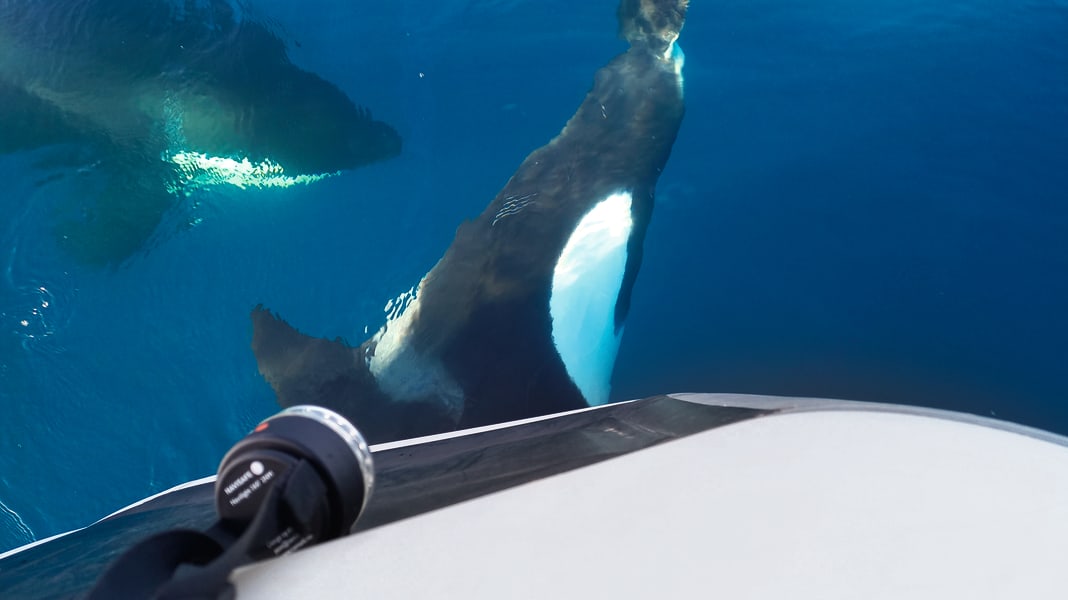
The British Cruising Association collects data on orca attacks and draws some surprising initial conclusions. There are said to be links with black antifouling
Few topics are discussed more among long-distance sailors making their way to the Canary Islands or the Mediterranean than that of orcas, which are increasingly attacking sailing boats off the Portuguese and Spanish Atlantic coast and breaking off their rudders or even damaging the suspension in the hull so badly that the yachts sink. Researchers have been studying the issue for years, trying to find out why the animals attack and, above all, how sailors can best protect themselves against them or avoid the attacks altogether.
A working group of the British Cruising Association under John Burbeck has now put forward initial theories on this subject, which it is now pursuing further and attempting to confirm or refute. To this end, it is collecting information online in questionnaires from sailors who have had contact with the animals, regardless of whether they were then attacked or not. The questionnaire for those affected is online and can be can be accessed here. Black antifouling now increasingly became the focus of sailors.
Half of the boats that were attacked had black antifouling
"According to our data, more than 50% of the boats that were attacked had black antifouling," reports Burbeck. Of course, this could also be a coincidence if many yachts have black antifouling, but at the same time "only 25% of the boats that were not attacked have black antifouling". The data basis of the British, who have been compiling reports since April 2022 and have now analysed around 120 of them, seems to be quite broad.
"It's possible that something interesting is emerging, but of course we still need to collect more data," says Burbeck. Nevertheless, the study has already produced other interesting results, such as the fact that the initially recommended immediate switching off of the echo sounder on contact with the animals has no effect whatsoever. Of course, it could be that the theory of black antifouling will disappear again with more reports, but at least this is an approach that should be pursued further.
Orca attacks: No solution known yet
The British are also trying to draw conclusions about the animals' behaviour during the attack, but this is proving difficult, says Burbeck:
"Some of the attacks happen quite suddenly. There's a crash and the rudder is broken. In other cases, it's quite obvious that the animals are playing, because they turn the oars carefully, give them a gentle push and obviously enjoy it, returning again and again until it finally breaks. After that, the animals very quickly lose interest. Other yachts have been accelerated by the whales to speeds of up to four knots. Some are clearly playing with the boats, others come racing in like cannonballs and simply break off the rudder at lightning speed. Sometimes it's a single animal, sometimes up to six. It would be easier if it were always the same procedure, but that's not the case."
Sand is probably not the key to success after all
Other tips circulating against the orcas are not very helpful either. Last idea was, Throw sand into the water when the animals attack. It is supposed to be uncomfortable for them and interfere with their vision. A crew that did just that when they were attacked reported that it worked at first. But they had to take quite large quantities of sand with them, because as soon as they stopped scattering when the supplies were exhausted, the animals attacked again and broke off the rudder.
Sailors who want to pass through the affected sea area in the near future can now find information on the subject on a whole range of websites, including the blue water website Noonsite, which provides a Extra page on the topic which is constantly updated. The YACHT also recently had a big topic about this online.

